Lincoln family raise funds to help descendant of Icelandic WWII hero
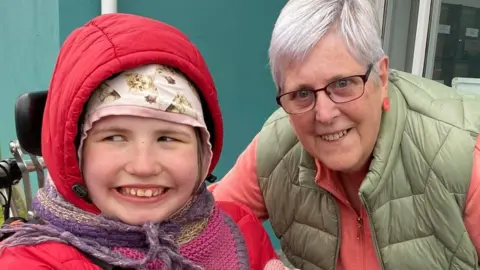 BBC
BBCA Lincolnshire woman whose father was saved by a man in Iceland during World War Two is now helping the hero's great-great-granddaughter.
Sue Frecklington's father, Phil, was a soldier stationed in Iceland during the war, and was rescued from a snow storm by a local farmer, Meyvant Siggurdson.
Mrs Frecklington said she was now raising money for his young descendant who has an incurable illness.
"If it hadn't been for that [Icelandic] family I wouldn't be here," she said.
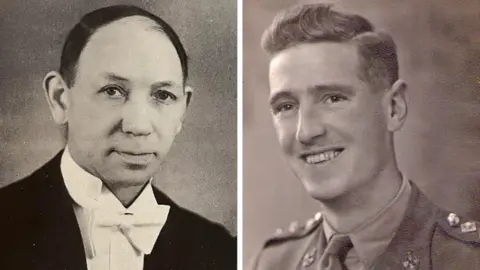 Sue Frecklington
Sue FrecklingtonShe said the families had remained friends for more than 80 years, with Mrs Frecklington and Meyvant's granddaughter writing to each other since the age of 15.
Both families had also visited each other's homes.
Mrs Frecklington, who lives with her husband Tony in Skellingthorpe, near Lincoln, said: "My dad was trained for Arctic warfare on manoeuvres in Iceland. There was a very bad snow storm and several of them in his platoon lost their lives.
"But he was rescued by a man called Meyvant who was looking for his sheep, I understand, in this snow storm. So he took him back to his farm and looked after him.
"From then on they kept friends... [and] I was born after the war."
Meyvant's great-great-granddaughter, Sunna, 17, was diagnosed with Alternating Hemiplegia of Childhood (AHC), a neurological disorder, when she was two years old.
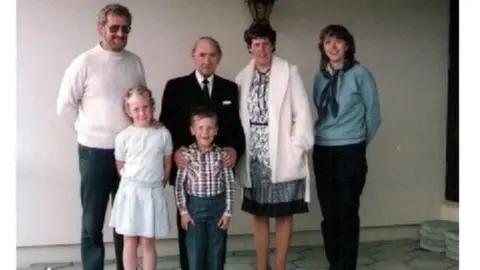 Sue Frecklington
Sue FrecklingtonAccording to the AHC UK charity, the condition is "extremely rare", affecting one in a million children globally.
It causes "episodes" similar to epileptic seizures, but also has symptoms similar to stroke, paralysis and Parkinson's disease.
Sunna's father, Siggi Johannesson, said the complex illness meant his daughter had a mental age of a three-year-old with the episodes flaring up unexpectedly at any time.
"We take it one day at a time.
"If she has a good day then we can do things together but if she has a bad day then we basically need to be at home taking care of her. It's unpredictable."
Her mother, Ragga Hjaltisdottir, Meyvant's great-granddaughter, said water, sunlight and stress were "big" triggers for her daughter's episodes.
"It's like a human timebomb, we never know what's going to happen.
"She has lots of limitations."
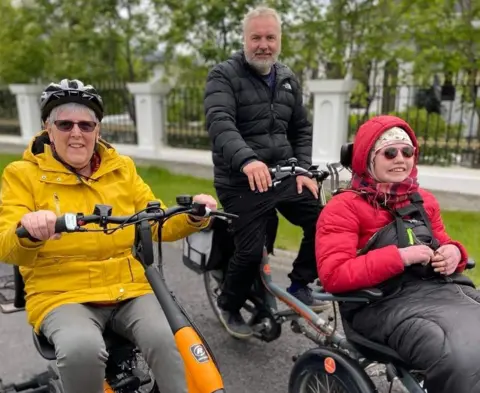 Sue Frecklington
Sue FrecklingtonMrs Frecklington said she and her husband felt compelled "to do something" and were organising craft fairs to raise funds to help pay for research into a new treatment for Sunna's condition, as well as raise awareness.
"She's lovely. She loves dressing in leopard prints and she can be full of fun. She likes riding her wheelchair bike," she said.
Mrs Frecklington has been sewing quilts while her husband has made jewellery and other wooden items, which they sell.
So far the couple have raised more than £5,000 in the past 10 years through fundraising initiatives including an annual cycle ride, she said.
"[It's] some sort of paying back for my own life," said Mrs Frecklington.
"I feel it's in me. It's something I've got to do to say thank you for me being here."
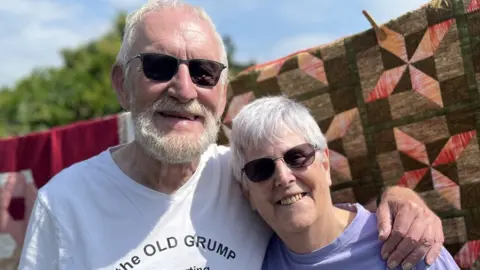
Siggi said the Frecklingtons' fundraising meant "the world to us".
"Their support is tremendous," he said.
"We love them very much, they're very dear [to us]," added Ragga.

What is AHC?
AHC is caused by mutations in the ATP1A3 gene.
Patients experience repeated, though short-lasting, attacks of hemiplegia - paralysis of a portion of the body.
This ranges from numbness to full loss of feeling and movement.
Attacks or episodes may last for minutes, hours, or even days. Sleep can relieve the symptoms.
If the autonomic nervous system - which controls body functions such as breathing or the heartbeat - fails, AHC can cause sudden death.

Follow BBC East Yorkshire and Lincolnshire on Facebook, Twitter, and Instagram. Send your story ideas to [email protected].
